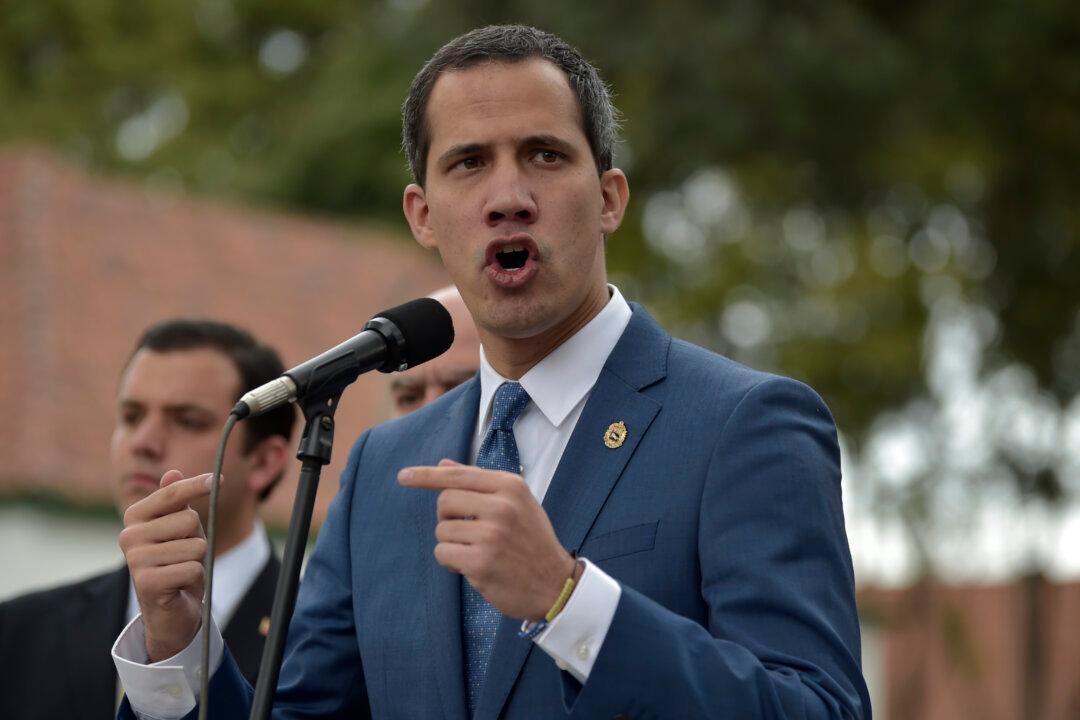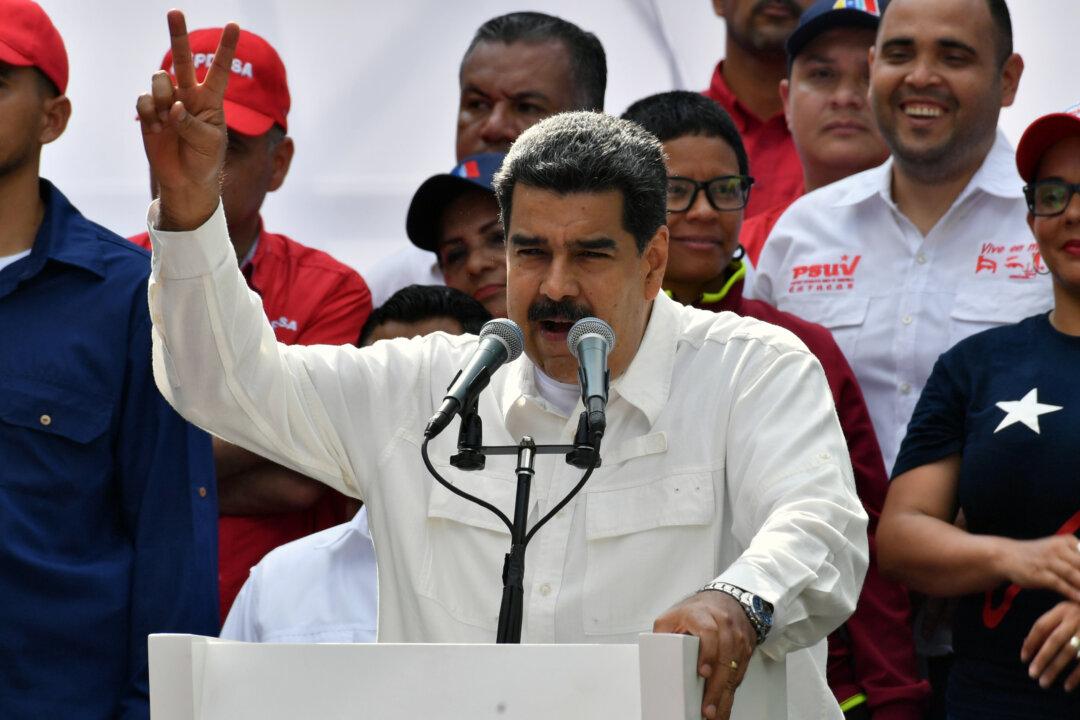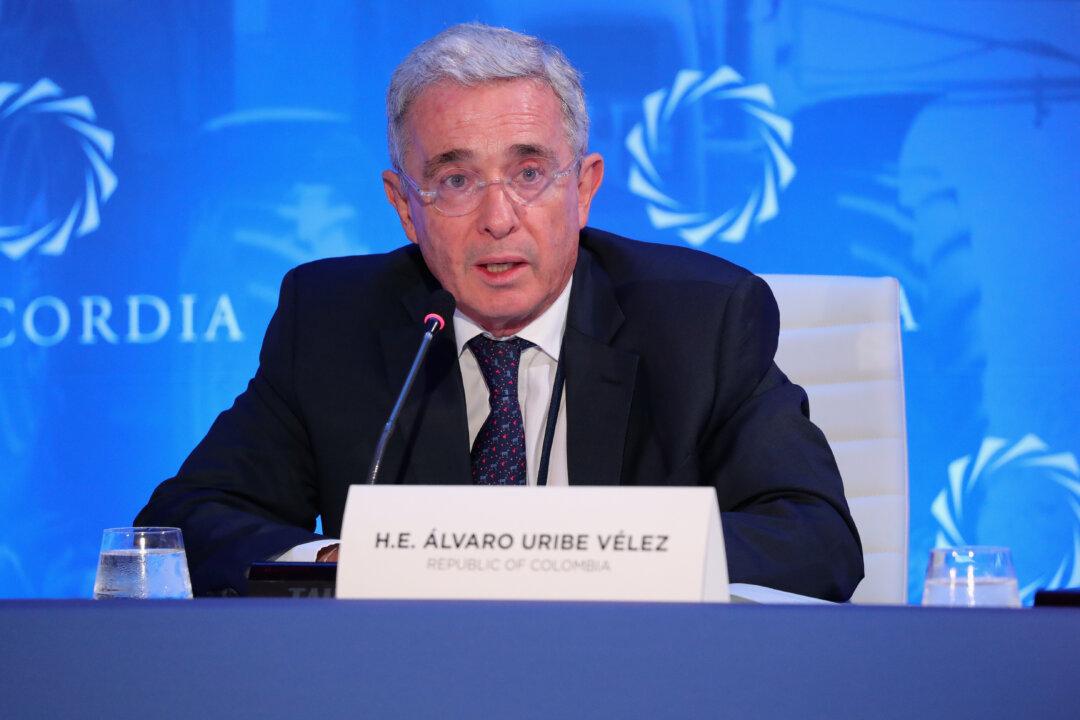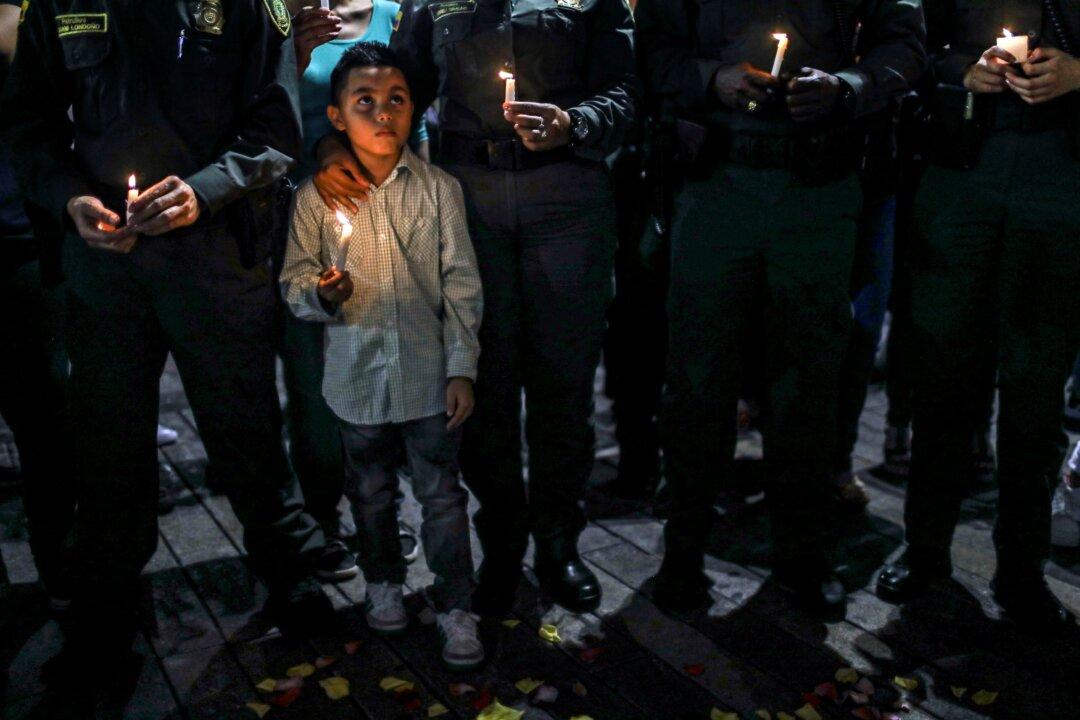CUCUTA, Colombia—Thousands attending a concert to raise money for Venezuela’s humanitarian crisis at the Colombian border on Feb. 22 were surprised by the appearance of Juan Guaidó, the leader of the opposition who is currently facing off against Venezuelan regime leader Nicolas Maduro over control of the country.
Crowds let out confused murmurs and then cheers of elation when it was revealed that the fresh-faced lawyer had made his way across the border, the logistics of his trip having been kept top secret in order to prevent Maduro from enforcing the travel ban he imposed on him in late January.




